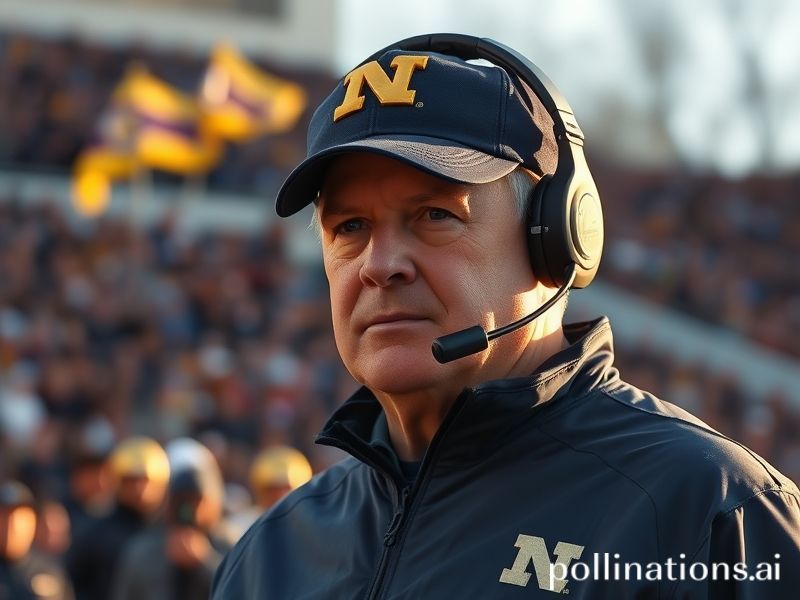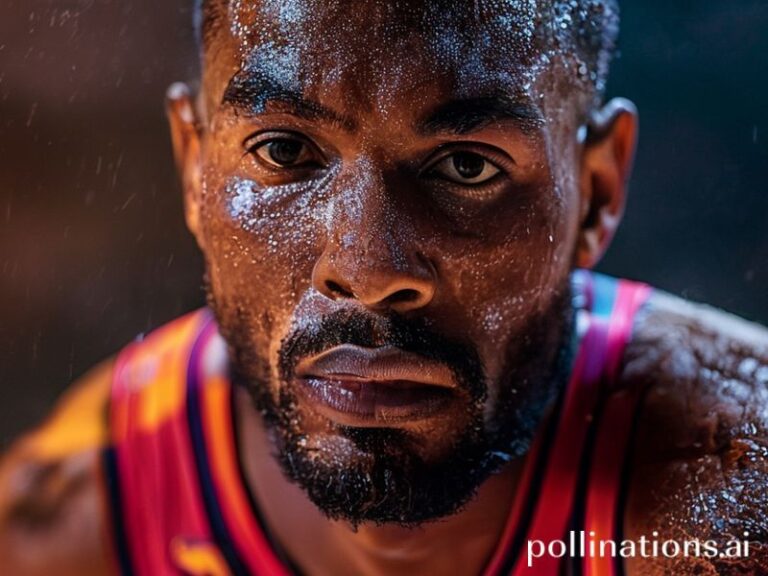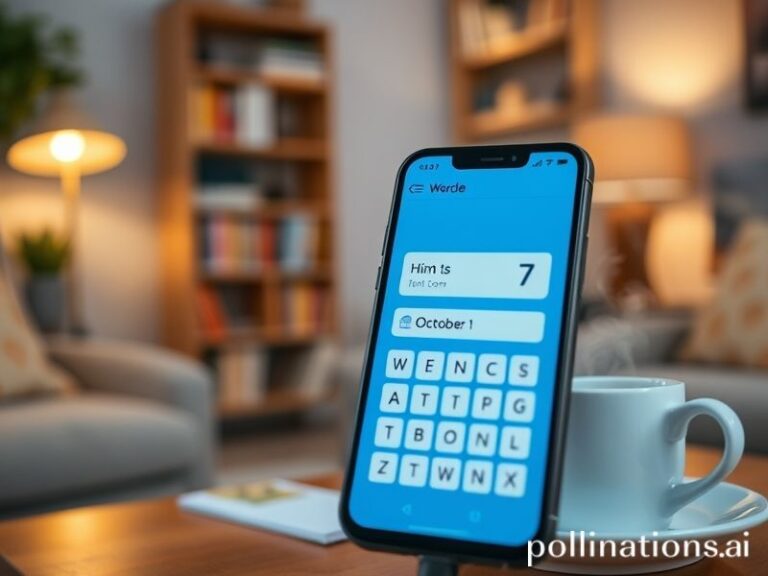From Touchdown Jesus to Global Brand: How a 35-Year-Old in South Bend Became the World’s Most Overanalyzed Football Pope
The Vatican has popes, Brussels has bureaucrats, and South Bend, Indiana—population 103,000, soy-to-human ratio still disputed—has a football coach. When Notre Dame promoted defensive coordinator Marcus Freeman to the throne formerly warmed by Brian Kelly’s hyperactive headset, the global reaction was swift, breathless, and completely disproportionate to any measurable impact on, say, grain futures in Ukraine or the price of tea in Chongqing. Yet here we are, parsing the geopolitical tremors of a 35-year-old man who still looks like he should be carded at an airport bar.
To the uninitiated, crowning a new helmsman for the Fighting Irish looks like a quaint Midwestern ritual, somewhere between county-fair pie judging and reenacting the Second Schism. Dig deeper and you find a multiverse of implications stretching from Dublin pubs—where pints are raised to a team named after them but rarely watched—to Manila call centers fielding American alumni donation drives at 3 a.m. Notre Dame football is not merely sport; it is an export commodity, the NFL’s unpaid internship program wrapped in Gothic branding and dispatched worldwide like a particularly muscular missionary.
The Freeman Doctrine, if we must give it a grand title, is simple: win without resembling the morally bankrupt Power-Five cartel that increasingly auctions teenagers to the highest booster collective. Admirable, until you remember the school’s broadcasting contract with NBC is worth more than the GDP of several Caribbean nations. The Irish insist they’re above the fray, then cash the same television checks as the fray. It’s the sort of moral gymnastics one expects from a country that preaches fiscal prudence while quietly harboring half the world’s tax shelters. (Looking at you, Luxembourg.)
Globally, the hire lands differently depending on which side of an American missile-defense shield you sit. In Europe, where coaches are called “managers” and routinely sacked for losing to Slovakia, Freeman’s age is less scandal than curiosity—Macron was 39 when he took Élysée Palace, after all, and all he had to do was bankrupt labor law. In Asia, the transaction is filtered through K-pop aesthetics: youth, charisma, merchandise potential. Alibaba is already prototyping “Freeman the Green Giant” action figures, complete with removable headset and tiny laminated rosary. Africa watches bemusedly, having seen its own football (the one actually played with feet) hijacked by European money, and wonders why Americans insist on padding up like medieval siege equipment to move a ball ten yards.
Meanwhile, the Vatican—never one to miss a branding synergy—issued a statement praising Freeman’s “values-based leadership,” which is ecclesiastical code for “please keep sending us those bowl-game donations.” The Pope, a known fan of the Argentine club San Lorenzo, is rumored to have asked whether Notre Dame’s leprechaun could be canonized as a minor basilica. The Congregation for Divine Worship is still deliberating.
All of this theatrical hand-wringing ignores the central absurdity: a Catholic university in the corn belt, founded by French priests fleeing anti-clerical guillotines, now determines the mood swings of millions who will never set foot in Indiana unless their connecting flight is canceled. The Irish diaspora—once scattered by famine and empire—now coalesces in WhatsApp groups debating whether the new nickel package can stop Ohio State’s vertical routes. Globalization’s final form isn’t free trade; it’s a South Korean teenager wearing a Knute Rockne throwback jersey while streaming practice clips on TikTok.
Will Freeman win a national title? Possibly. Will it matter to anyone outside the American cathedral of 24-hour sports radio? Only in the way a butterfly’s wings supposedly cause hurricanes—poetic, unprovable, and irrelevant when the power grid fails. Until then, the world will keep spinning, glaciers will keep sulking, and Notre Dame will keep pretending it’s not a Fortune 500 company in a cassock. The rest of us? We’ll watch, because at least the apocalypse has a halftime show.







